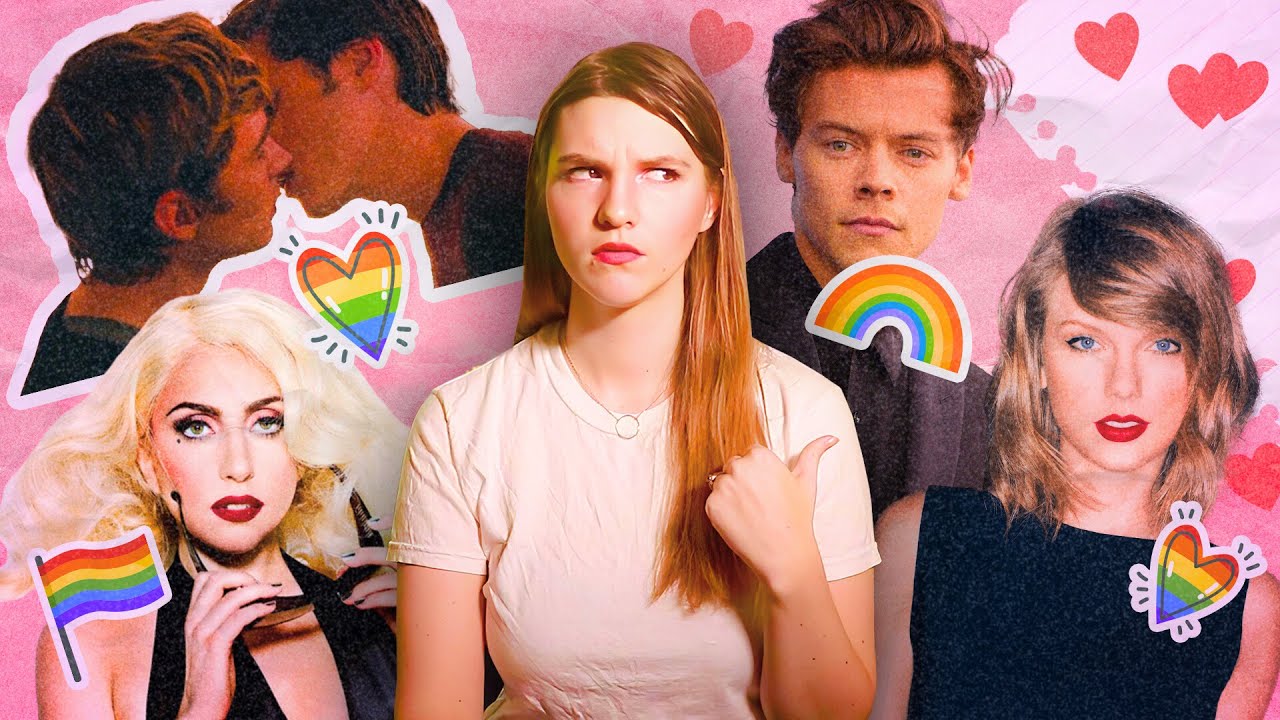This video talks primarily about the way that a lot of gatekeeping discourse in queer circles actually hurts closeted and questioning people, and how some of it copies transphobic narratives about trans women, ect.
I have been thinking about this for AWHILE now. I remember having an argument with my girlfriend (who has since changed her mind about the issue, though her position is now apathy) and my now ex-best friend (not over this argument, lol, much bigger issues) about the whole “only queer actors should take queer parts” issue. And for some reason at the time I didnt think of the “that would seriously hurt a closeted actors by basically becoming forced outing” at the time (but I thought of it before Sarah mentioned it in this video lol, it was bringing it up to my girlfriend that made me learn that she had shifted her position).
The thing about “men wearing skirts are predators looking to take advantage of women” seems especially toxic to me because it is literally the SAME thing said about trans women just targeted towards GNC men who still identify as cis instead. Its one of those things that for me should seem bad ON ITS FACE in a way to the people saying it, sort of like how I was shocked to see people who say they hate TERFs echoing ace exclusion discourse) .
I’ve also been against faux-progressive/social justice language being used for bullying and gatekeeping for a long time now.
So this is just another manifestation of that.



John Early put it best: straight actors should play gay characters because it’s hot
But seriously, I find it odd that anyone thinks that gay cis characters should only be played by gay actors. As long as gay actors also play straight characters, which they can and have done for the entire history of the performing arts, then why does it matter? Generally I’d say it’s more important to have queer stories that are written/directed by queer people. If those queer writers and directors are comfortable with casting straight actors in their work then that’s cool. If they think a queer actor is better suited for that particular project then that’s cool too.
Of course it’s quite a different issue when it comes to trans characters, as openly trans actors have historically not been given opportunities in the film/TV industry. There certainly isn’t much precedent for openly trans actors playing cis roles in the same way that gay actors have played straight roles. But I think that is starting to change, and we will see more trans actors taking on roles that are not necessarily trans (really the majority of characters in media are not even explicitly stated to be cis or trans, if it’s not relevant to the story). For the present time I think it makes sense that most trans characters should be played by trans actors but there’s still some grey area. Are there times when it might make sense to cast a cis actor for a trans character, especially if the character is closeted/pre-transition? Yeah maybe, if it’s handled respectfully and there are trans people working on the project behind the scenes.
[sorry I haven’t seen Sarah Z’s video yet so I dunno if these same points were brought up. I’ll watch it later]
Tbh the queer actors in queer parts issue is not as much of a focus of the video as me mentioning it makes it seem. Its brought up as an example of something that can caused forced outing, which is a bigger focus. But yeah I agree with what you have to say here.
This is possibly tangential but the forced-outing thing makes me think of A Nightmare on Elm Street 2. The lead actor, Mark Patton, was a young closeted gay man who was essentially outed because the straight writer of the film altered the script to be a not-so-subtle allegory for homosexuality when he realized Patton was gay. It ruined the guys acting career because it was the 80s and being openly gay was still not acceptable in Hollywood. Quite a sad story but there’s a pretty good documentary about the whole thing.
The concept of roles being taken by people with the same traits irl was something interesting that I’d never thought about wrt LGBT before (I don’t consume much with actors in general). I have an ex who is a wheelchair user and I have my own disabilities, but invisible, so we did a lot of comparing notes on our experiences. She brought up how she believed characters with disabilities should be played by disabled actors and it took me a long time to understand why. This is a great point in the other direction but of course it doesn’t translate to the world of visible disabilities. I think it could translate to invisible disabilities since you’re not necessarily inherently “out” but I have to give it more thought.
After rereading this and considering I’m not super familiar with hexbear, I feel like I should also note I’m not trying to say LGBT is a disability, just that it’s an ethical guideline I’ve been taught before in one way and has “intersectional ramifications” if that makes sense.
Yeah as a disabled person I generally prefer that disabled people play disabled parts especially with intelectual disabilities because otherwise it just feels like a really crass parody even in the hands of a skilled actor. I dont like films like A Beautiful Mind and such.
But with queer parts it seems different to me even though I am also queer. While I can see how it seems like a good idea on the surface to apply it to queerness as well, the forced outing issue as well as other wrinkles make it different to me.